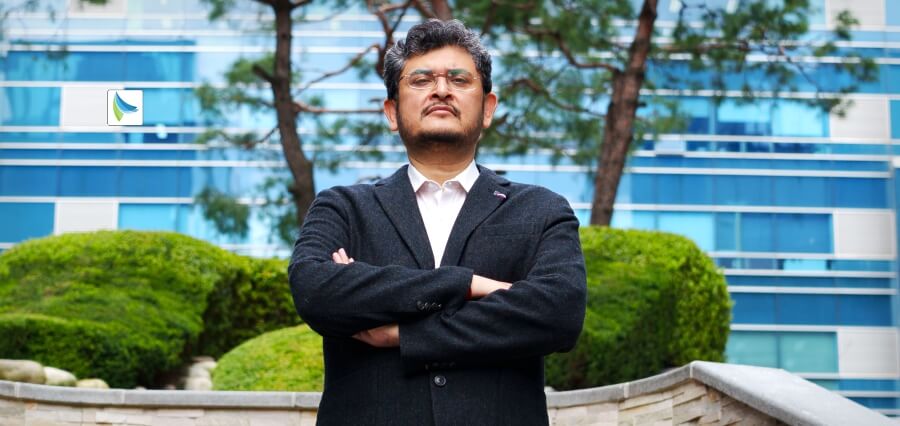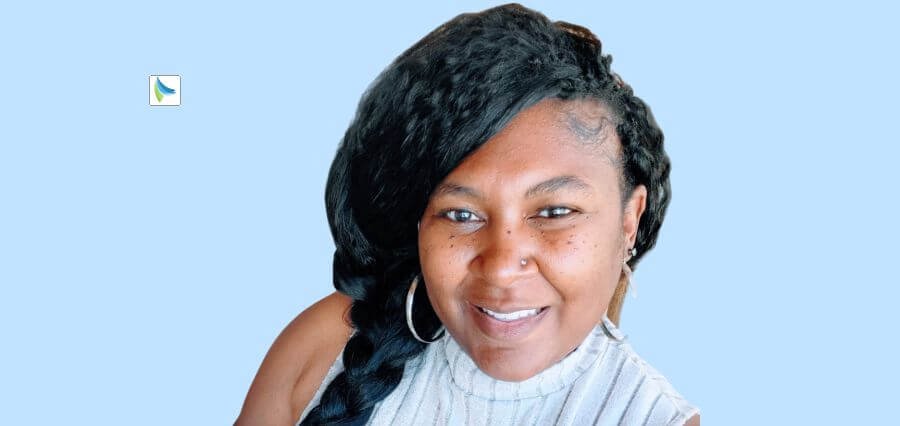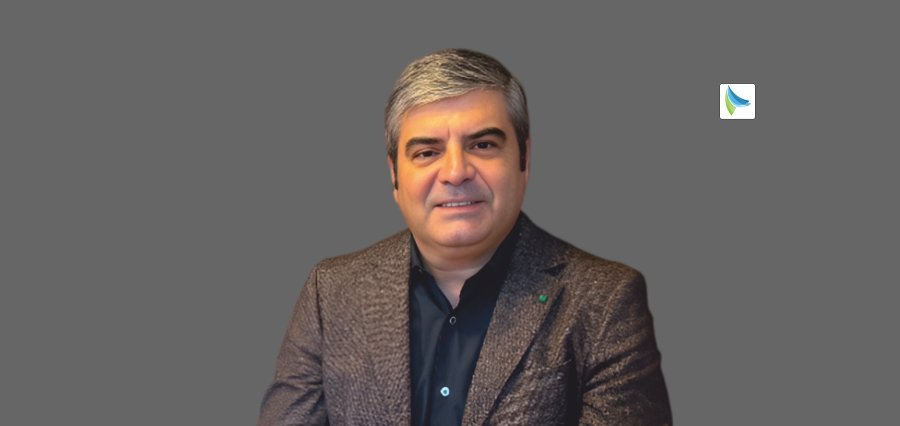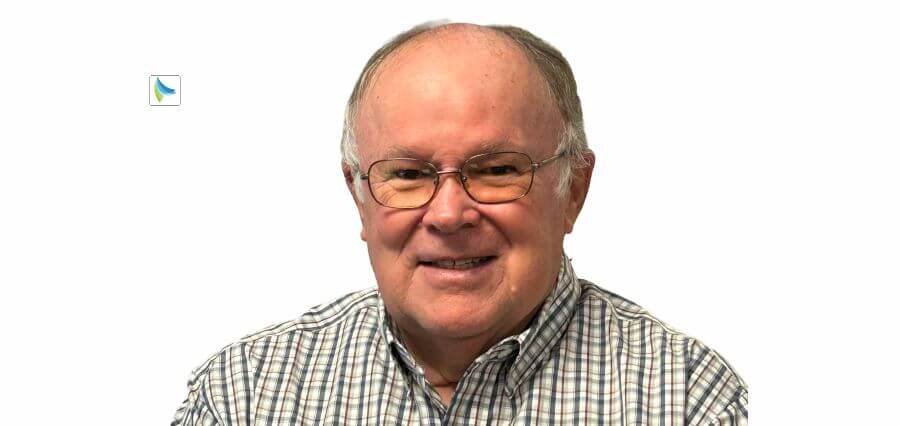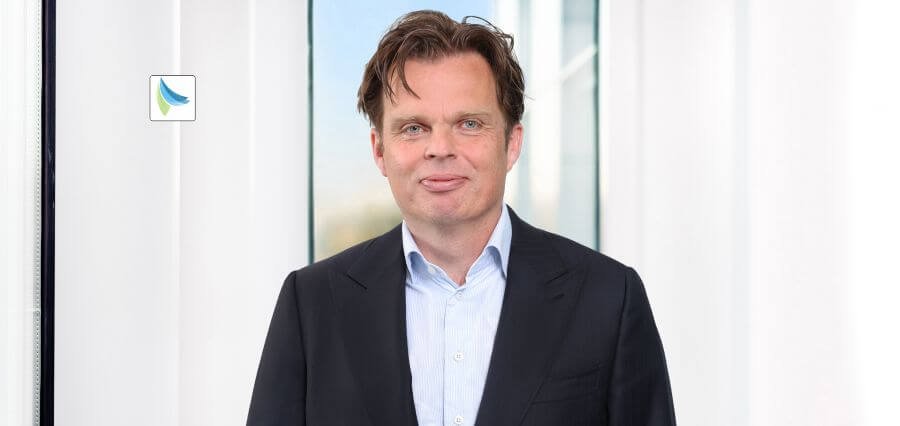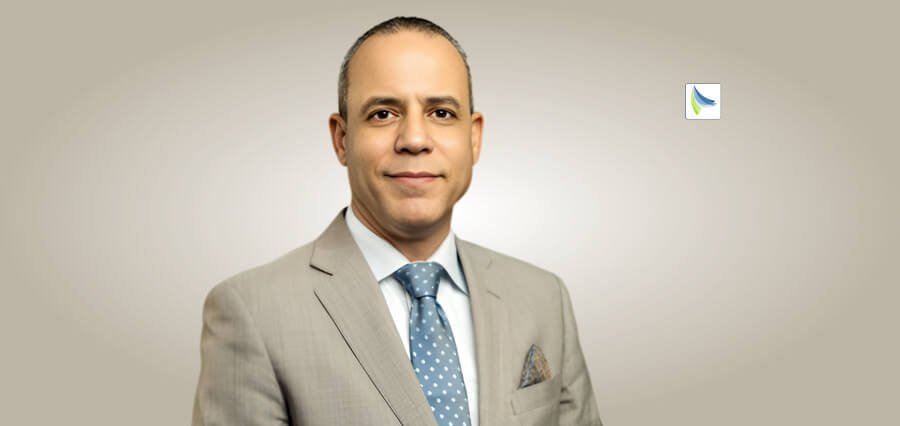Every professional journey begins with aspirations—dreams of building, creating, and achieving something meaningful. Mrinmoy Chakraborty has always carried aspirations that go beyond climbing the career ladder. He carries a vision to make work better, inspire people, and spark progress that extends beyond individual success.
From the beginning, Mrinmoy believed that true growth happens when professional excellence and personal enrichment walk hand in hand. He takes each step in his journey with the conviction that improving the way he and his team work also creates opportunities for others to rise. In his view, success becomes collective, and leadership shifts from authority to empowerment.
What makes his story unique is this balance—he pursues ambitions with determination while keeping a deeper sense of purpose at the center. He follows a simple yet powerful approach: do meaningful work, uplift those around you, and use every achievement as a positive step toward becoming a better person.
His journey tells more than a story of professional accomplishments. It tells the story of a man who shares progress, fosters inclusive growth, and measures success as much in character as in career. This is the story of Mrinmoy Chakraborty.
Growing up in a picturesque riverside town, Chandannagar in West Bengal, India, Mrinmoy reflects on his childhood memories. He shares, “Although we were a typical middle-class family, our lives were extremely rich with love.” Mrinmoy recalls how his elder brother, sister, and the rest of the family pampered him. He carries countless childhood memories that seemed insignificant then but are priceless today.
Mrinmoy expresses that, being an introvert, books became his windows to the outside world. His mother, a former schoolteacher, shared a powerful narrative: “A king is respected only within his kingdom. A wise man, however, is respected everywhere.” That message sparked his lifelong journey to seek knowledge—from nature, from books, and from every person he met in life. Mrinmoy’s father taught him that life constantly gives us a choice: to approach every situation with fear or with love—and that he should always choose love.
He soon realized that he could only do four things well:
Reading,
Writing,
Thinking, and
Loving.
The rest of his life, he focused only on these “life skills.”
Learning became a serious hobby. After high school, Mrinmoy had the option of studying medicine at Calcutta National Medical College or engineering at Jadavpur University. He chose the latter, eager to ride the wave of emerging technology in India. He pursued Electronics and Telecommunication Engineering at Jadavpur University.
After three years of work experience, he transitioned from engineer to manager by pursuing his MBA at IIM Mumbai. Mrinmoy promised his newly married wife that he would win the gold medal at B-School, and true to his word, he kept his promise.
In Pursuit of Excellence
Although Mrinmoy learned a great deal in the corporate world, he wanted to build something larger than himself. Following his aspirations, he went to Stanford Business School to rediscover his potential, pursuing a second MBA as a Sloan Fellow. That experience set him on the path to a global entrepreneurial career for the next 13 years.
He chose academia as a platform to reimagine his promise of success. In fact, he recently began his doctoral journey at Warwick Business School, pursuing research in strategy, artificial intelligence, and transformation. For Mrinmoy, education has always been more than degrees—it is a platform that gives him a voice to speak for the unheard, in the right way and for the right reasons. Learning humbles Mrinmoy as it reminds him how little he truly knows and keeps the curiosity alive while keeping the ego in check.
Mrinmoy’s journey—from Chandannagar to Bangalore, Mumbai, Silicon Valley, Jeddah, Korea, and now London—makes him more of an explorer. Settling down was considered the ultimate goal in the world where he grew up; however, he found his joy in being “happily unsettled.”
Looking back, many aspects of Mrinmoy’s career may appear like a perfectly crafted strategy, that he quips as “strategy after the fact.”
After graduating from IIM Mumbai, Mrinmoy joined Cypress Semiconductor, a U.S.-based multinational, while it was setting up its first business unit in Bangalore, India. He gained hands-on experience while learning to develop systems and processes, embracing a culture of no-excuse execution, and received invaluable mentorship from several global industry leaders.
Early responsibilities accelerated his growth into corporate adulthood. However, the pace of his fast-track career also caused burnout, and he decided to attend Stanford Business School to find the next big step in his career.
At Stanford, Mrinmoy co-founded his first startup in Boston and California with Dr. Brian Lee, a former Cypress colleague and prolific innovator. He expresses, “We set out to solve a major supply-chain problem using the then-emerging Internet of Things in 2010. My other co- founders, Jamshed Dubash and Jahangir Nakra, became lifelong friends, and I had the most memorable experience of venturing into the unknown with he only certainty being that I could lean on the shoulders of my co-founders when I am falling down. I was right.”
His first startup experience taught Mrinmoy risk-taking and revealed the true challenge of creating real business outcomes through technology. Adoption of new technology is essentially a change management problem rather than a purely technological one. He emphasizes, “Too often, entrepreneurs fall in love with what they have built and confuse vision for illusion. Too many enterprises remain busy solving the wrong problems efficiently—one reason why most digital transformation initiatives fail.” The most important thing is to identify a real “painkiller problem” and solve it at scale. The first startup laid the foundation for his second ambition.
In 2017, Dr. Joon Chung, Chairman of SOLiD Group Korea and Dr. Seung Hee Lee, CEO of SOLiD Technologies—two visionaries who built one of Korea’s finest technology success stories—, invited Mrinmoy to come to Korea for his next adventure. The highly advanced Korean technology ecosystem and culture of disciplined execution offered an opportunity to combine Korean hardware with Indian software to solve problems for the global market.
In 2022, Dr. Chung entrusted him to build a new company under SOLiD’s umbrella, giving him the platform to realize the entrepreneurial dream he had left unfinished in his first attempt. SOLiD Inspire was born with the goal of helping enterprises grow revenue, profitability, and valuation through digital transformation by aligning people, processes, and technologies. The COVID crisis did not slow the progress; instead, it accelerated the growth of SOLiD Inspire.
Mrinmoy, along with his team, built MyPrism, an AI-based strategy consulting platform that guides companies from value identification to value realization. He expresses, “Our mission is to democratize strategy, enabling organizations of all sizes to identify the highest-impact business priorities and unlock growth by solving them.” In just 3 years, SOLiD Inspire served customers in 28 countries across 11 industry verticals – including manufacturing, life sciences, automotive and retail. MyPrism is expected to generate
$100M in recurring revenue and, more importantly, transform the lives of more than 1 million enterprises by 2030. With most customers, together, they have created long-term partnerships lasting 5–10 years—a rarity in today’s world where transactional relationships are far more common.
He believes that the MyPrism platform will change the way organizations solve problems and create value.
Mrinmoy’s Chief Technology Officer and architect of MyPrism, Satya Bhamidipati; Head of Digital Business and a technology visionary, Vinod Paliakara; Head of Operations, Jung Wook Lee; and every inspirer have worked tirelessly and selflessly to make this vision a reality.
A Life Measured in Moments, Not Milestones
Mrinmoy’s professional life is deeply integrated with his personal life, and he cannot truly separate the two. He prioritizes being a father, friend, and entrepreneur—in that order. He manages three to four time zones and more than 100 interactions a week. He considers his greatest achievement to be attending every parent-teacher meeting for his elder son, who begins his undergraduate studies at UCL this year. Mrinmoy intends to do the same for his 10- year-old younger son as well.
Mrinmoy is never too busy for his family when it truly matters. He expresses, “I am not the perfect father, husband, CEO, or friend all on the same day at the same time—that would be like violating Schrödinger’s equation of physics and life.” However, he does his best, and he does not suffer from guilt when he cannot. He misses the anniversary date for a Board meeting but compensates for that with a song reel over the next weekend.
His family and friends forgive him easily because they know he will always be there when it matters most. Mrinmoy still remembers storming out of a corporate meeting because his 10-year-old son needed an umbrella. At that moment, he chose to be a father rather than a CEO, and “I have been unapologetic about such choices,” he reveals.
He works 14–15 hours a day, almost every day, not because he has to, but because he loves to. Mrinmoy does not recall struggling a single day in life, not because there were no challenges, but because he saw duty, responsibility, and greater purpose in every challenge he ever encountered. He is acutely aware of people who go through extreme hardship and suffer every day with little or no hope.
They inspire him because the problems he faces seem insignificant when compared to the journeys of the “extraordinary ordinary” people.
Mrinmoy knows no shortcut to achieving results other than the old-fashioned way—smart work. Still, he makes time to read books on flights, call his friends from airports, sing for his YouTube channel, and capture his thoughts through writing. He does not chase perfection in life. Mrinmoy values gaining new experiences above everything else. For him, there is no good or bad experience; he demonstrates, “It is what I make of it, and how I use it as part of my learning.”
Defining Leadership Through Action
Mrinmoy intentionally avoids using the word “leader” in his résumé or LinkedIn profile throughout his career. He defines, “Leadership is not a position or title—it is the act of driving positive change in an uncomfortable world, when the majority is comfortable with the status quo. A so-called leader ceases to be one when they fail to act when it matters, while an “ordinary” person can rise as a leader simply by choosing to act and make the world better in a given moment.”
Mrinmoy sees himself as a work in progress. He reflects, “Only time will decide whether I qualify as a leader, based on what I contribute toward meaningful change when I hang up my boots. To me, leading is simply loving. Most positive transformations in the world came from leaders who led with love—even when they masked it with a little anger.” For him, leadership in the corporate world means loving the product, the people, the customers, and the partners.
He is writing a book, Leading with Heart, to share with the world why love is not a sentimental Hollywood or Bollywood notion but a much-needed quality in business—especially in technology. He often says, “We need to bring more art and heart into the smart world of technology.” He also champions humor as a leadership tool, one he believes is severely underutilized. Humor, he explains, unites people and creates a culture of openness where they feel safe to share vulnerability.
Mrinmoy believes the most essential attribute of leadership is the ability to act and decide. He follows a few guiding principles, the foremost being integrity—doing what he says and saying what he does. “If I cannot defend a decision publicly—in front of my children, colleagues, shareholders or partners—then perhaps it is not the right decision,” he notes. He projects the long-term impact of every choice and asks himself whether he will still stand by it, regardless of the outcome.
He has grown comfortable making uncomfortable decisions, as long as they serve the larger interest of the organization and the people he represents. He accepts that not all of his decisions will be right. What he cannot accept is the failure to decide at all out of fear of making a mistake.
Performing with Passion, Reflecting with Dispassion
Mrinmoy has learned over the years to perform with both passion and dispassion—a quality that helps him to stay focused on the job without worrying too much about the outcome once the work is done. He believes, “I am able to do this because I take my work seriously but not myself. It is important to learn the distinction between self-esteem and ego.”
On any given day, Mrinmoy deals with 15–20 different topics. To manage this, he tries to hit a “reset button” in his mind each time he starts a new task so that the residue of the previous one does not affect his current work. While Mrinmoy connects the dots across different subjects to build a bigger story, he also treats each dot independently when needed.
Mrinmoy believes strength and weakness are two sides of the same coin. For instance, his impatience often serves as a strength in certain situations but can hinder him in others. He encourages others to recognize that even a weakness can act as a strength depending on context.
As someone who was painfully shy as a child, he came to appreciate that introverts often have the loudest thoughts. This realization shaped his leadership approach later in his career, where he made it a priority to include even the quietest voices in discussions.
He states, “Many of my colleagues admire my ability to simplify and explain complex ideas in clear, simple terms.” Ironically, this strength stems both from his inability to think in complex ways and from the fact that he is not naturally detail-oriented.
For Mrinmoy, strengths and weaknesses are like Yin and Yang—co-existing forces within every individual. What matters most is how one chooses to leverage them in the context of life.
The Journey from Achievements to Meaningful Impact
For the first 20–25 years of Mrinmoy’s life, he worked solely for himself. He believed that he needed some awards and recognitions, academic or professional, as validation to prove to the world that he is good enough. As Shahrukh Khan says, “Don’t become a philosopher before you become rich.” I would encourage all to enjoy all the successes to such an extent that it no longer matters.
However, Mrinmoy’s true rewards came when he started caring less about personal achievements. One of his greatest honors was when Dr. Joon Chung entrusted him with the role of CEO, making him one of the few foreigners to lead a Korean multinational company. However, when the glamour of the title faded, what he truly cherished was the sense of responsibility—to care for customers, partners, and the broader ecosystem of people and ideas. Creating new jobs and opportunities through SOLiD Inspire became his real reward. “My dream is not just to build a company, but an ecosystem where everyone thrives,” he reflects.
Today, he spends 10–15 days each month leading innovation and transformation at one of the largest family- owned businesses in Saudi Arabia. For Mrinmoy, the greatest reward has been the trust and respect he earned from his colleagues in another culture.
Mrinmoy’s curiosity and love for problem-solving have been recognized with 25 international patents. Yet, the moments he values the most are when he is invited to speak at alma maters and inspire the next generation of students. When IIM Mumbai awarded him the “Most Promising Young Alumnus” title—exactly one year after his father passed away—Mrinmoy dedicated that recognition to him. Above all, the opportunity to mentor over 200 colleagues and friends from more than 15 countries has been one of the most fulfilling rewards of his journey.
Words of Wisdom
Start by being a good team player. Leadership is about getting the job done as a team, not about being the smartest or most charismatic person in the room. The concept of heroic leadership—the image of a leader singlehandedly saving the world—is romantic, surreal, and ultimately unreal.
The leaders of the future will not be the ones who just sound impressive in meetings or in motivational podcasts. They will be the ones who get the job done quietly behind the scenes and create an environment where everyone else can be their best. A true leader lets the best ideas emerge without worrying about who gets the credit. He believes in the old- fashioned mantra that good work does not go unnoticed in the long run.
Future leaders will require more kindness than smartness. Artificial intelligence can be smart, but it cannot be kind. Tomorrow’s leaders will be collaborators, orchestrators, enablers, and storytellers. They will not feel the urgency to steal the limelight from their co-actors. The true power of leadership is not to command but to empower, both oneself and others.
Equally important, future leaders will embrace vulnerability. They will be comfortable with their imperfections, understanding that authenticity builds trust. They will focus less on building reputations on social media and more on building character that lasts.
Success is the freedom to be the best version of oneself—the luxury of doing what you love and being with the people who truly matter. Too often, success is confused with accomplishments, but Mrinmoy doesn’t believe they are the same. He has never encountered a truly successful person who spent their life chasing success. Instead, success comes as a byproduct of working hard to make oneself worthy of it.
Life as the Ultimate Startup
Life is an extraordinary opportunity to create meaning for oneself and create opportunity for others. Entrepreneurship is just one of the ways to do that, and entrepreneurship is not just about building startups. It is an approach to life.
The creative homemaker mother who is managing limited resources to run a family is as talented as a CEO bootstrapping his way to startup survival.
Mrinmoy thinks it is important to have immense pride and self-respect for the job that individuals are doing, and to do it with love and care. He concludes, “Being a CEO is not so important. Being the CEO of one’s own life is.”
Read Also: Most Inspirational Icon To Look For In 2025






